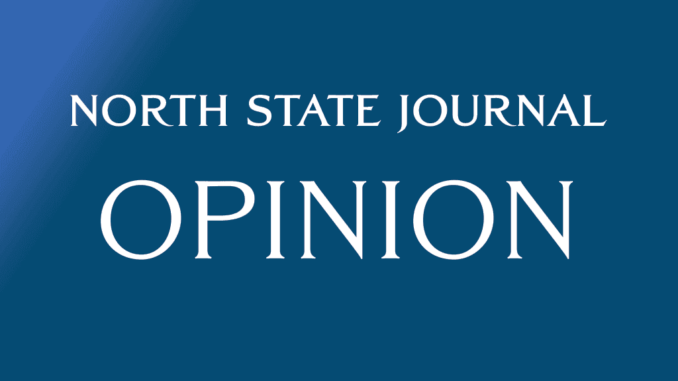
UNC’s new School of Civic Life and Leadership’s goal to teach critical thinking and free expression seems quaint, even charming, given today’s campus sensibilities.
In the words of a fondly remembered editor in Atlanta, “It’s just basic.” He would infuse this with just enough menacing Southern drawl to terrorize me and other staff reporters based in large Southeast cities to fix fast whatever problem he had with this or that draft story and get it to the wires, lickety-split.
Let’s hope the new school gets things quickly back to basics too. Learning what and how to think on your own is fun. It gets even better when you gift others with the space and freedom to think out loud, get it wrong, get it sort of right and learn together. You build confidence and self-esteem. You promote your point of view like a pro. You do your cause better service.
This I learned at UNC, in the public square, no safe space handy, as college campuses, including ours, first began to grapple in the 1970s with another big, global issue ― apartheid, the state-sponsored racial oppression in South Africa.
Deliberate and inaccurate use of the term on campus this year to criticize Israel sparked my vague memory of real-life exposure to apartheid and a role I played in sparking a real apartheid debate at UNC early on that played out well using only the basics.
To awaken memory, I made a surprisingly easy and productive laptop search of The Daily Tar Heel at the Digital NC project of the North Carolina Digital Heritage Center. I rediscovered a masterclass of free student expression, critical thinking and learning together at UNC. There were strong words aplenty but no theatrics.
In the summer of 1975, before my sophomore year, I traveled to South Africa briefly as a tourist. The next school year, I described what I saw as a student reporter for The Daily Tar Heel.
Student editors who shared my concern topped my story with a headline reading: “S. Africa: modern country, backward views.” A same-day editorial teasing the article to readers was headed: “Apartheid: cruel reality.”
It packaged up nicely. I considered my work done but was soon in for what my future editor in Atlanta would call “the fanny treatment.” An opinion piece soon showed up by a student columnist who called me screaming “virgin fuzz.”
My student critic explained his word choice this way: “Mr. Lazenby has made things even simpler by writing a one-visit article, which, as one must expect, not only draws easy conclusions, but indignantly flings out frantic details as if it were a fuzz ball which has encountered electricity for the first time: virgin fuzz screams loudest.”
An op-ed by another student writer called me a “Land of Oz” correspondent deserving of an award for “outstanding fiction and hyperbole” to be named after two famous men caught up in gigantic public lies of the era. Others weighed in as well.
My safe space was my typewriter (yes, an old-fashioned typewriter, not a laptop) and rebuttal. In short, a campus conversation about tragic, big and complex international matters began with passion, facts, intensity and no shout-downs or physical intimidation of others on campus. Here was an example of student-to-student learning about apartheid in South Africa at UNC months before riots in a distressed South African township called Soweto brought the issue more fully to popular global attention.
Apartheid finally ended in 1994 with the election of Nelson Mandela, the nation’s first black president. By then, millions of people the world over from different sectors, including colleges and universities, had joined the issue, in print and in protests.
UNC appeared among the first, and it joined the issue in a smart way that could be applied today to elevate the current campus debate into a learning opportunity.
Students observed. They read and researched carefully. They clarified their thinking by reasoning, writing and publishing. Those are good intellectual tools that can embolden free expression with confidence, good cheer and even a bit of humility. Here’s one alum holding high hopes that SCiLL helps students sharpen their tools.
Comity is both a public responsibility and necessity in free society.
It’s basic.
Mark Lazenby worked in print journalism, corporate communications and public relations consulting for four decades. He is a 1978 graduate of UNC Chapel Hill.
